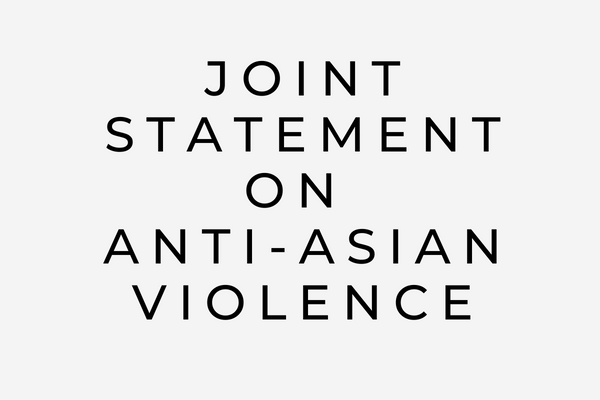Joint Statement on Anti-Asian Violence

To our campus community,
As Ohio State campus entities directly related to Asian & Asian American Pacific Islander communities, we write in empathy and solidarity to students, staff, and faculty, who have been feeling the impact of the recent events in Indiana and California.
We are devastated to hear of the racist attack on an Asian Identifying student at Indiana University, the mass shootings in Monterey Park and Half Moon Bay, California, and the vandalism of Tokyo Foods here in Cincinnati, Ohio. So many of us have been both directly and indirectly impacted by anti-Asian hate crimes before and since the pandemic began, and now, to see gun violence perpetrated by the two Asian-identifying shooters in California, our community must process a new dimension of violence. While focusing on Asian and AAPI communities here, we acknowledge the pain and suffering caused by the police killing of Tyre Nichols in Memphis on January 7. These crimes bring with them reflections on racial violence, gun violence and police brutality, as well as different dimensions of collective pain and grief.
We need to build strong foundations and networks of solidarity as these violent acts continue to occur within our communities. As an AAPI community, we must advocate for support for our Asian-identifying communities day in and day out, not only when a tragedy is mentioned in the media. We need education that helps us explain why this violence has happened, how we can build solidarity with our fellow communities of color, and what role we can play to protect and advocate for our community and others impacted by gun violence, police brutality and racism. Here are some on campus resources to learn more about the histories and experiences of our AAPI community:
- Center for Ethnic Studies
- Asian American Studies
- Department of East Asian Languages and Literatures
- Near Eastern and South Asian Languages and Cultures
- Center for Belonging and Social Change
- APIDA Employee Resource Group
Finally, for many of us, learning to take care of ourselves is challenging. Mental health remains deeply stigmatized, both within our AAPI community and in the United States at large. As a community, we can continue to actively break down the stigma of mental illness, both in our community and in this country, most especially after tragedies occur that have personal and collective impact. By learning to make time to connect to self-care practices, we can, in our own small way, push back on oppressive systems that ask us to erase our emotional experiences in favor of productivity. Here are some resources for immediate mental health and other support:
- There are university resources available on-demand to students who are struggling with mental health concerns.
- There is support for urgent needs also.
- For employees, go to the Employee Assistance Program to access their support services.
- If you are a survivor of trauma and you’re experiencing symptoms of re-traumatization, the professionals at the Stress, Trauma and Resilience (STAR) Trauma Recovery Center can provide personalized support. Please call (614) 293-STAR (7827) or email STARTraumaRecoveryCenter@osumc.edu. Hours: Mon. - Fri., 8 am – 5 pm
Please also feel free to reach out directly to any of the individuals or groups below. You, your experiences, and our community are not invisible to us, and we want you to know that you’re not alone.
With peace and love,
Namiko Kunimoto, Director, Center for Ethnic Studies, OSU
Sophia Antoun, Steven Ing, Tanya Mathew, Hua Wang APIDA ERG of The Ohio State University
Pranav Jani, Program Director, Asian American Studies (Center for Ethnic Studies), OSU,
Morgan Liu, Chair, Department of Near Eastern & South Asian Languages & Cultures (NESA), OSU
Meow Hui Goh, Chair of DEI Committee, Department of East Asian Languages and Literatures
Mytheli Sreenivas, Director, South Asian Studies Initiative, OSU
